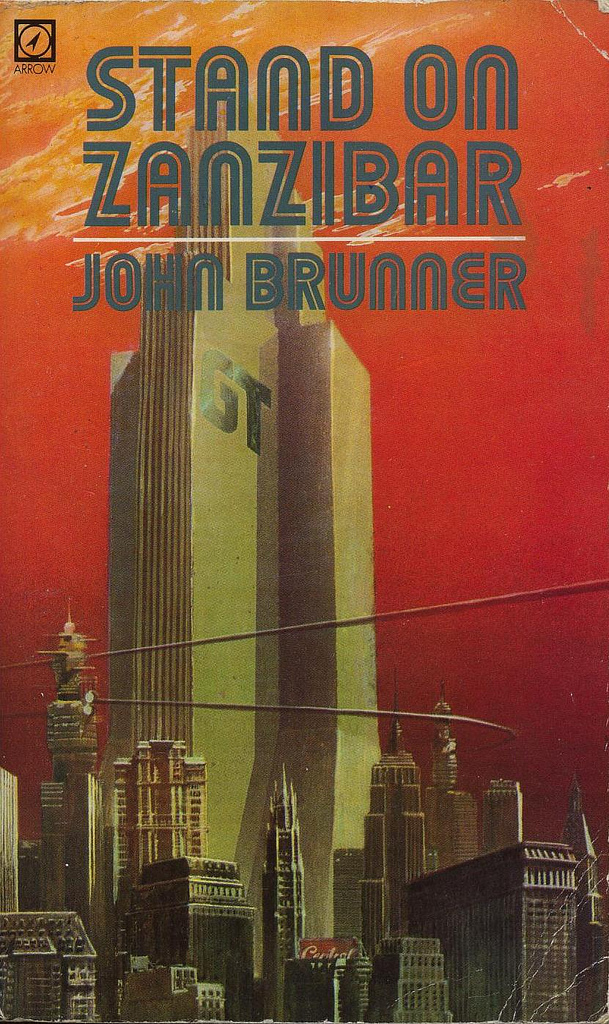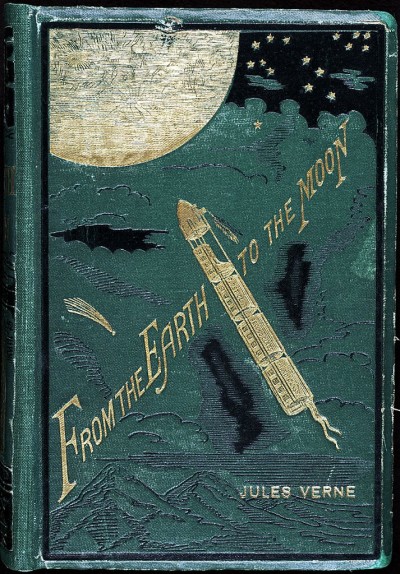• H.G. Wells: Often called the “father of science fiction,” Wells is known for coining the term “atomic bomb,” anticipating the creation of tank warfare, laser weapons, and more ordinary items like the automatic door and pest-resistant plants.
• Jules Verne: Sure, he’s best known for his classics – Journey to the Center of the Earth, Twenty Thousand Leagues Under the Sea, and Around the World in Eighty Days, but some of his other works like From the Earth to the Moon and Paris in the Twentieth Century predicted such advancements as the submarine and the lunar landing.
Popular Electronics:
• Ray Bradbury: There’s a reason he’s a legend of the genre. In his seminal novel, Fahrenheit 451, Bradbury’s description of “little seashells….thimble radios” which were responsible for an “electronic ocean of sound, of music and talk” certainly seemed to anticipate one of the most used technologies of the 2000s: the earbud. The Martian Chronicles also warned against some of the repercussions of nuclear warfare.
• Arthur C. Clarke: Not just a popular film, 2001: A Space Odyssey is also a fascinating book, which offers a description of a device called a “newspad” that is eerily similar to a modern tablet. Other Clarke predictions: mass transit and remote surgery (see video above). Additionally, a shorter manuscript was said to imagine a vast telecommunications satellite array that helped with television signals.
• William Gibson: Gibson coined the word “cyberspace” in an early short story, “Burning Chrome,” more than a decade before the World Wide Web was even invented. His seminal work, Neuromancer, offered a further glimpse into the world of the Internet and guessed, rightly, that there would be computer hackers in the future.
• David Brin: His 1990 book EARTH describes “21st-century characters using screen displays filled with clickable links—in other words, Web pages.” More than that, there’s an entire website devoted to the other aspects of life that Brin’s text got right.
Social Implications:
 • Aldous Huxley: Although published in 1930, Brave New World still feels like a modern text thanks to details like soma, a mood-altering medication in widespread use by Londoners of the future that sounds remarkably like our current societal reliance on antidepressants.
• Aldous Huxley: Although published in 1930, Brave New World still feels like a modern text thanks to details like soma, a mood-altering medication in widespread use by Londoners of the future that sounds remarkably like our current societal reliance on antidepressants.
• George Orwell: While 1984 was published back in 1949, adaptations of the text are very relevant today as we continue to worry about privacy, surveillance and the presence of Big Brother-esque technology.
• John Brunner: His 1969 novel Stand on Zanzibar is often cited as an eerily accurate depiction of life in 2010. The novel depicts a President Obomi in a country where terrorist attacks and school violence are sadly routine. Brunner also predicted an acceptance of gays, satellite TV and electric cars.
So what will the authors of today anticipate? Only time will tell.


 • Aldous Huxley: Although published in 1930, Brave New World still feels like a modern text thanks to details like soma, a mood-altering medication in widespread use by Londoners of the future that sounds remarkably like our current societal reliance on antidepressants.
• Aldous Huxley: Although published in 1930, Brave New World still feels like a modern text thanks to details like soma, a mood-altering medication in widespread use by Londoners of the future that sounds remarkably like our current societal reliance on antidepressants.
